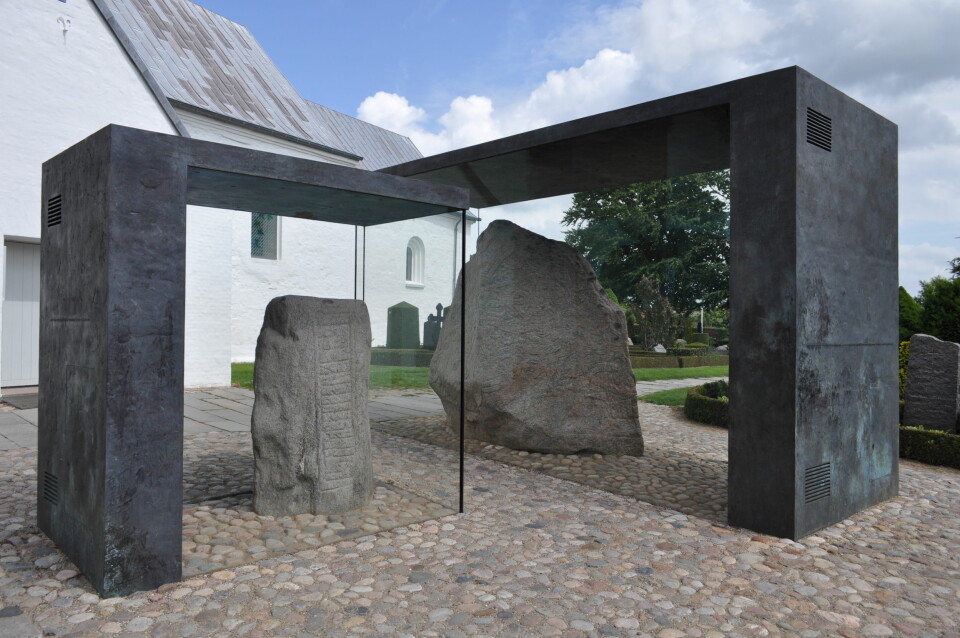
Bringing heritage back to the people: The cultural politics of the Scandinavian far-right
Bringing heritage back to the people: The cultural politics of the Scandinavian far-right | ScienceNordic
Over the last 20 years, the multifaceted ‘far-right’ has been the fastest-growing party family in Europe. Scandinavia is no exception: The Danish People’s Party is Denmark’s second largest party, and the Sweden Democrats’ is the third largest party in the Sweden. The Progress Party is not only the third largest party in Norway, it is also well into its second term in office.
While the three are situated at different ends of the far-right scale, their rhetoric is structured around the dichotomy between the elite and the people. Whereas the latter is considered 'pure,' the elite – represented by politicians, corporate leaders and experts – are commonly portrayed as corrupt. Moreover, this stance is combined with a new way of articulating racism: Based on ‘ethno-pluralism,' the far-right argue for the preservation of cultural diversity and the ‘unique characters of different peoples.’
This is linked to a xenophobic form of nationalism in which a mono-cultural nation-state is seen as the ideal and where all non-natives, particularly Muslims, are perceived as a threat.
Hence the enemy within, the elite, which is seen as selling out their countries and preaching cultural relativism, is joined by an enemy at the gates, both linked to the perceived hazards of globalisation, attacking “the people” from two flanks. This ‘politics of fear’ means that far-right groups tend to approach nearly every major issue as grounded in clashes between irreconcilable social classes and cultures. Wrapped up in this discourse of a cultural struggle we find strong references to heritage.
Heritage and cultural struggles in party manifestos
Examining the party manifest and budget propositions of the three Scandinavian far-right parties, we found that their budget priorities did not differ substantially from other parties in Scandinavia. Rather the differences are found in their parallel discourse on culture, heritage, and people: Although they recognise that culture is never static or free from outside influences, their manifestoes consistently point to a homogeneous society based on continuity as the natural and most desirable order.
Moreover, we found that the parties operate with a division between past and present culture. Present culture, like contemporary art, should rely on the open market for funding, while past culture, heritage, is portrayed as society’s ‘social glue.’ Defined as the national language, Christianity, cultural traditions and tangible remnants from the past, heritage is considered a key state concern in terms of protection and funding.
Through this initial study we found that the heritage policies of the Scandinavian far-right have had an effect on what heritage has been funded in Denmark, but almost none in Sweden and Norway. Focusing on the manifestoes and budgets, however, made it clear that other factors played a much bigger role and that our findings were at best partial. Rather than the funding itself, it is the proposals and the rhetoric used to argue for them that has had the most impact.
Finally, as pointed out by policy scholars, the most urgent far-right cultural policy issues may not be labelled as such. Both in Denmark and in Norway, it is through indirect polices on reducing bureaucracy and governance reforms that the heritage sector has been affected. While transferring tasks and personnel from the national to regional level, aligns with the notion of ‘bringing heritage closer to the people,’ it can also be a way of increasing political control. Because, as the far-right rational dictates, it should not only be up to experts and arms-length agencies to decide about things like heritage, but to the people, and since the people are represented by their elected politicians, it is only fair they have a say.
More information:
This talk was given at the American Association of Archaeologist (AAA) in San Jose, USA (November 14, 2018).
The talk and text are based on: Niklasson, E. & H. Hølleland 2018 The Scandinavian far-right and the new politicisation of heritage. Journal of Social Archaeology 18(2):121-148. https://doi.org/10.1177/1469605318757340







